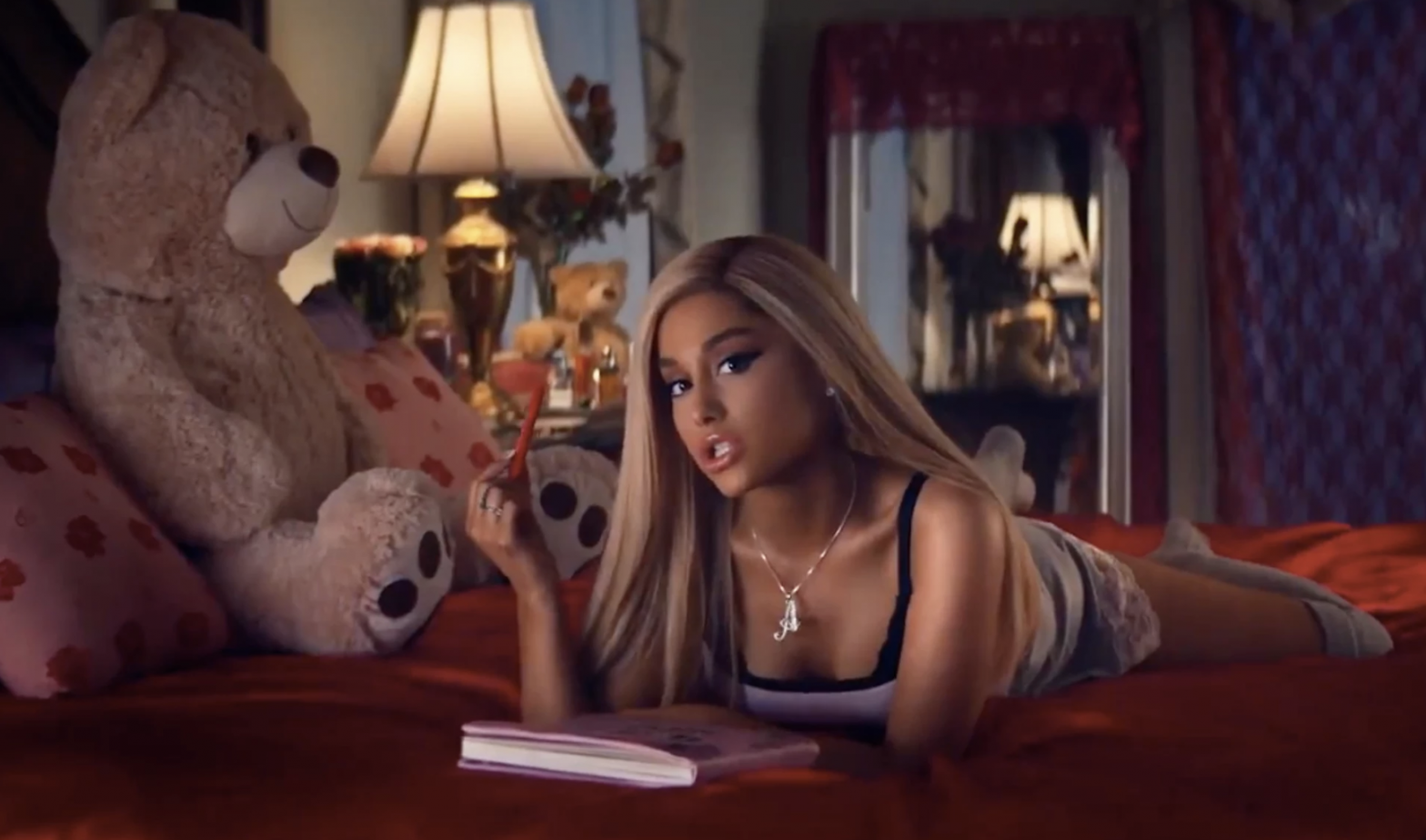Ariana Grande has spent much of the past year in the spotlight, between her whirlwind engagement and split with SNL cast member Pete Davidson and her new album sweetener. She has become a master of Internet fame, with carefully curated tweets and Instagram posts that keep her growing mass of followers rapt.
In many ways, her most recent video for “thank u, next” is Grande capitalizing on her own trendiness. Plus, fans love to see a vindictive breakup. Burning pictures, slashing tires, and tossing a man to the curb have proven sensational, profitable approaches to the genre of pop-breakup songs in the past. The plethora of celebrity cameos contribute to the somewhat insidious economic motive of the piece. Actors, YouTube stars, and reality show divas dance in and out of the frame. “thank u, next” embraces pop culture wholeheartedly, and it proudly demonstrates how culture feeds off of itself in a cyclical fashion.
I would argue that the instantaneous popularity of “thank u, next” has less to do with the strategy of its timing and video production, but more with the message itself. It stands out from other breakup songs because it isn’t driven by anger, frustration, or grief. Ariana Grande has created something extremely uncommon: a breakup without bitterness. Although the song was probably in part a reaction to her broken engagement, the plot of the song doesn’t revolve around one particular man: it’s about Grande herself. She rejects the idea that her life or her identity is determined by these men, telling us:
I’ve loved and I’ve lost
But that’s not what I see
‘Cause look what I’ve found
Ain’t no need for searching.
“thank u, next” isn’t about moving on after a breakup. It’s about a sort of self-confidence and self-love that is still rare enough to be shocking when it hits. The movie references to Legally Blonde, Bring it On, and Mean Girls reinforce this claim. Although the three do share some elements of a stereotypical romance story (e.g. all of the protagonists end up in a relationship with a man), the films are overall focused on journeys of self-discovery and friendships between women. They all tell the story of learning to be fulfilled by one’s own self, without the need for others to fill a hole that we are often taught exists without men. The song builds on that conversation of being “completed” through another person, particularly a romantic partner.
This is why I would argue that “thank u, next” is not just another earworm from a vindictive ex: instead, it’s an anthem of self-respect and growth. It’s a song about not staying stuck, about moving on in a way that is healthy and responsible.
“thank u, next” can be shallow and silly and fun. But it would be a mistake to forget to acknowledge that the song is also a triumph of self-love and grace with one’s own mistakes, a direct challenge to the typical expectations of perfection through romance.
Her proclamation serves as the ultimate act of agency.
Why? Because Ari tells us so.

